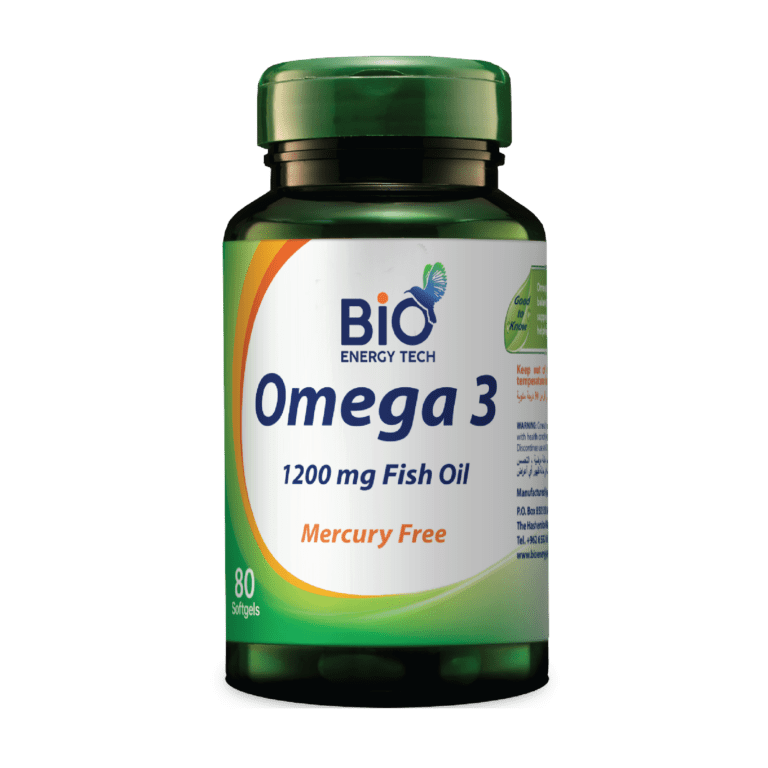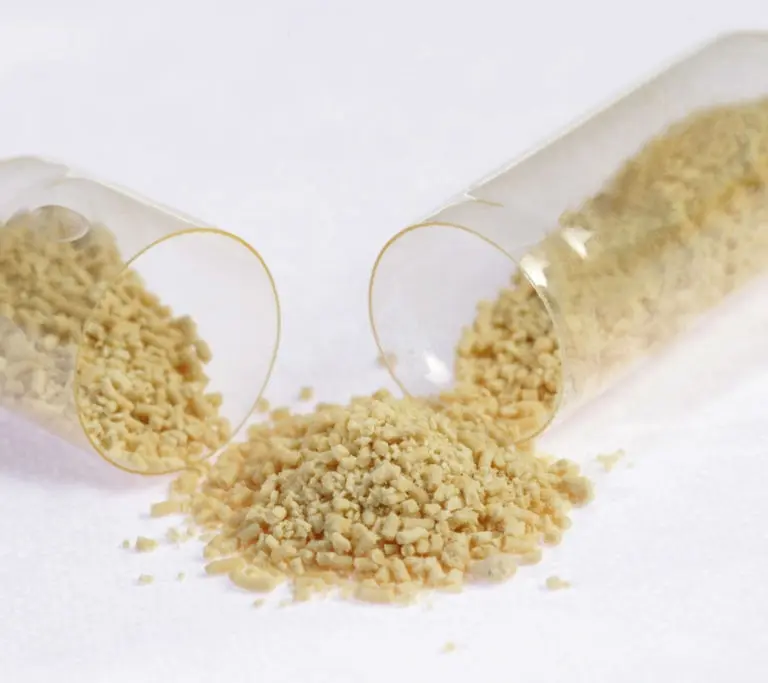Omega 3, commonly known as fish oil, is a polyunsaturated fatty acid that comes from fish, especially salmon. Omega-3 contains many beneficial properties that are yet to be discussed in this article. A person can obtain omega-3 by consumption of foods that contain fish or directly by consumption of omega-3 extract pills. Omega-3 pills are usually used to reduce triglycerides and other lipids levels in the blood, reduce inflammation as well as to strengthen hair. They are also used for some kidney and heart diseases.
Mechanism of Action of Omega-3
Omega-3 contains two important fatty acids:
- Eicosapentaenoic acid (EPA), which has an important role in reducing inflammation in the human body.
- Docosahexaenoic acid (DHA), which has an important role in protecting cell membrane integrity especially in nerve cells. It also has an important role during pregnancy and lactation in fetal and infant nervous system formation and development.
Generally, the human body cannot produce its own omega-3 and the amount that can be obtained from food is actually minimal.
How Many Omega-3 Pills To Consume Per Day?
The daily dose is individualized according to a person’s needs for omega-3, however there are some pointers to consider when considering to supplement with omega-3:
- Avoid consuming more than 1.5 grams of Omega-3 per day. Except in cases where a doctor prescribes these pills and determines the dose to be taken as well.
- The best time to take omega-3 fish oil pills is while eating.
- Keep fish oil at room temperature. Avoid exposing it to heat, moisture and do not freeze the pills.
Omega-3 Benefits
- Omega-3 and Blood Lipids
Studies have shown that the intake of omega-3 in therapeutic doses prescribed by a doctor can significantly reduce high levels of triglycerides in people with hyperlipidemia. Omega-3 is currently being studied as a prospective drug that may be used to treat elevated levels of blood triglycerides.
- Omega-3 for Weight Loss
Some studies have shown that consumption of omega-3 supplements while following a healthy diet, may decrease appetite and hunger pangs. It has also been shown that consuming omega-3 may speed up a person’s metabolism which means more calories are being burned, ultimately aiding in weight loss.
- Omega-3 & Artery Health
As some studies have indicated, consuming omega-3 supplements can prevent the narrowing of arteries and prevent their blockage.
- Omega-3 & Attention Deficit Hyperactivity Disorder (ADHD)
Studies observed that omega-3 supplement consumption in ADHD children aged 13 and above, helped increase their focus and improve their brain function.
- Omega-3 & the Heart Health
In general, omega-3 supplements reduce elevated triglyceride levels in the blood, which have a major role in cardiovascular disease. Omega-3 also protects against the narrowing and blockage of arteries that may predispose a person to heart attacks. Some studies have shown that omega-3 also has a role in maintaining heart stents after their installation by preventing their blockage thus preserving blood flow through them and keeping them healthy.
- Omega-3 for Women
It has been shown through some studies that consumption of omega-3 in women may relieve menstrual pain and other symptoms thus reducing the need for painkillers. While other studies have also shown that consuming omega-3 supplements helped prevent endometrial carcinomas in the majority of these women.
- Omega-3 During Pregnancy & Lactation
DHA is the constituent making up 40% of the polyunsaturated fatty acids in the brain and 60% in the eyes. Accordingly, some studies conducted on infants showed that children who consumed milk containing this fatty acid had better vision than others who didn’t.
Consuming omega-3 pills during pregnancy has many benefits for the fetus, including:
- Increasing IQ.
- Improving communication and social skills.
- Decreasing the chance of developing behavioral problems.
- Lowing the risk of growth retardation.
- Reducing the risk of developing ADHD and autism.
- Omega-3 & Blood Pressure
Omega-3 has many benefits for the arteries and veins, it reduces their blockage and narrowing. Studies have also shown that omega-3 consumption has a role in reducing high blood pressure.
- Omega-3 For Bone Health
Research indicates that consumption of omega-3 pills with calcium in elderly people with osteoporosis might decrease the rate of its progression and increase bone density, especially in the thigh bone (femur) and spine.
- Omega-3 & Autoimmune Diseases
Studies have shown that consumption of omega-3 during a person’s early years of life reduces the risk of developing autoimmune diseases later on. Research has also highlighted that omega-3 consumption in patients suffering from rheumatoid arthritis helped decrease inflammation and pain.
- Omega-3 & Hair Health
Studies around this topic are numerous and ongoing. However, some studies have shown a correlation between consuming omega-3 and healthy hair since omega-3 works on:
- Providing essential nutrients to hair follicles.
- Preventing hair follicle inflammation (folliculitis) which is an important factor in hair loss.
- Promoting blood circulation in the scalp, which increases hair growth by nourishing the follicles.
Side Effects of Omega-3
- Allergy to Fish Oil (Omega-3):
If you are allergic to fish oil or omega-3, you should not eat any products that contain them. However if this happens, you should go to the nearest hospital or ER clinic immediately. Among the signs of an allergic reaction to omega-3 are:
- Difficulty breathing.
- Swelling of the face, lips, tongue or throat.
- Fever and chills.
- Chest pain.
- An irregular heartbeat.
What to do if any of these signs appear? Stop using omega-3 fish oil and immediately contact your doctor.
- Other possible side effects of Omega-3:
- Mild back pain.
- A bitter or strange taste in your mouth.
- Bloating and an upset stomach.
- Mild rash.
Drug Interactions with Omega-3
There are no direct interactions between omega-3 supplements and any other drugs. However, if you take any other medications while taking omega-3, it is best to consult your doctor beforehand.
- Omega-3 & Birth Control Pills
Omega-3 pills or fish oil reduce blood triglycerides, but birth control pills that contain estrogen may reduce the effectiveness of omega-3 in lowering triglycerides. It is recommended to consult your doctor before supplementing with omega-3 in this case.
- Omega-3 & Blood Pressure Medications (Anti-hypertensive Medications)
The effect of omega-3 is shown to reduce blood pressure readings and increase the effect of anti-hypertensive medications. Therefore, there are some concerns about an additive decrease in blood pressure if these drugs are taken together with omega-3. These are some examples of anti-hypertensive drugs that may have an increased effect with omega-3:
- Captopril (Capoten)
- Enalapril (Vasotec)
- Losartan (Cozaar)
- Valsartan (Diovan)
- Diltiazem (Cardizem)
- Amlodipine (Norvasc)
- Thiazide Diuretics such as hydrochlorothiazide (HydroDiuril)
- Loop diuretics such as Furosemide (Lasix)
Consequently, it is crucial to consult your doctor if you take any of the above mentioned medications or other anti-hypertensive drugs before consuming omega-3 to avoid any unwanted and potentially harmful side effects.
- Omega-3 & Blood Thinners (Antithrombotic Medications)
Blood thinners are used to reduce or slow down blood clotting. The use of fish oil supplements or omega-3 may increase their action and effectiveness. Therefore, necessary blood coagulation tests must be performed and the dosage of these drugs may be adjusted based on the use of omega-3. Your doctor should be informed if you are consuming omega-3 with these medications. Several commonly known blood thinners are:
- Aspirin
- Clopidogrel (Plavix)
- Diclofenac (Voltaren, Cataflam, others)
- Ibuprofen (Advil, Motrin, others)
- Naproxen (Anaprox, Naprosyn)
- Heparin (Heparin)
- Warfarin (Coumadin)






